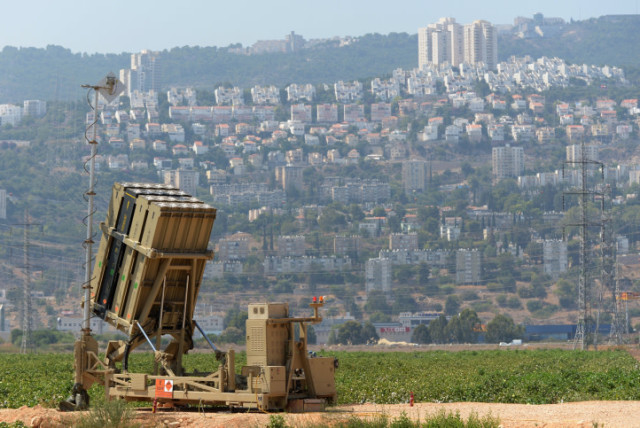War is draining Israel's economy, but gov't expenses aren't helping - opinion

Now that Israel is at war, having to finance a steep rise in military expenses, priorities must change.
At a recent conference in Tel Aviv titled “Economic Forecasts for 2024,” there was universal consensus by the foremost experts and leaders in attendance: No more business as usual post-October 7.
In the last 20 years, Israel’s economy experienced rapid growth, which helped lower the deficit. Now that Israel is at war, having to finance a steep rise in military expenses, priorities must change. The year 2024 will be no less critical than 1974. If we are to build the next decade, argued Yoel Esteron, the publisher of Calcalist [an English-language site focusing on Israeli technology], we cannot afford to relive another lost decade like the one after the Yom Kippur War from 1974 to 1985 with 35 percent military budget, hyper-inflation, and frozen growth.
In 1987, military spending went down to 19%; in 2000 to 8%; in 2010 to 6%; and last year to 3.3%. All this happened because of steep cuts in the military budget and the hi-tech prosperity. Esteron proposed a “New Deal” like Franklin Delano Roosevelt’s in 1933 after the Great Depression to compensate for the huge military, economic, and social expenses facing Israel in the years to come. Already in 2024, he went on to say, a demilitarized Gaza will need a “Marshall Plan” financed by Europe and the US which will benefit Israel as well.
Is the Israeli government engaging in sectoral bribery in its budget?
Of all the speakers, the most vocal critic of the economic conduct of Israel’s government was Eyal Waldman, the founder of Mellanox, one of Israel’s leading hi-tech companies. For him, October 7 was very personal. While [he was] working on developing an Envidia Center in Gaza, his daughter and her fiancé were murdered at the Supernova music festival by Hamas terrorists. Waldman pleaded for different economic priorities post-October 7 that will benefit the entire population rather than just particular sectors within it for political reasons. He called the government’s 2024 budget “sectoral bribery.”
Even within the Finance Ministry, Yogev Gordus, head of the Budget Division, voiced grave concern about the economic health of the country. His analogy was that of a critically ill patient in need of a drastic diet to save his life. He argued that the combined effect of consistently high interest rates to finance high government expenses for the war (30 times higher than in previous wars) while maintaining almost 30 government ministries during wartime is reckless. Raising taxes on a narrow segment of the population is not tenable in the long run, either.
He said that each Iron Dome interceptor costs between 50 and 70 thousand dollars. Military expenditure has reached NIS 75 billion since the start of the war, and it is anticipated that it will reach NIS 125 billion in 2024 – not including full-scale war with Hezbollah in the North.
Dov Kotler, the CEO of Bank Hapoalim, warned that the government has to practice fiscal responsibility in order to finance rising military and rebuilding expenses in the South and the North of Israel. It is essential to change national priorities from pre-October 6, he said.
Eyal Ben Simon, CEO of the giant insurance company Phoenix Holdings, warned that we entered the threshold of 2024 with weaker economic conditions than need be because of wrong economic priorities. We are at an economic crossroads and need to make painful choices, he said.
Yair Lapid, leader of the opposition in the government, voiced concern that “Israel has too large a government and too small an army.” He argued that if we are to sustain a NIS 25 billion rise in military budget, then all sectors of the population will have to get under the stretcher.
The war in Gaza put to rest what were controversial issues pre-October 7: the indispensability of the military reserve service, and the need for a strong combat ground army instead of just a lean technological army. All this requires meticulous budgetary planning. The speaker who put it best was Gordus, stating that the government has to choose between the right path and the easy path. It is all a matter of priorities. ■
Shoshana Tita is a writer and director of TLC of Potomac, Maryland.
Jerusalem Post Store
`; document.getElementById("linkPremium").innerHTML = cont; var divWithLink = document.getElementById("premium-link"); if (divWithLink !== null && divWithLink !== 'undefined') { divWithLink.style.border = "solid 1px #cb0f3e"; divWithLink.style.textAlign = "center"; divWithLink.style.marginBottom = "15px"; divWithLink.style.marginTop = "15px"; divWithLink.style.width = "100%"; divWithLink.style.backgroundColor = "#122952"; divWithLink.style.color = "#ffffff"; divWithLink.style.lineHeight = "1.5"; } } (function (v, i) { });


